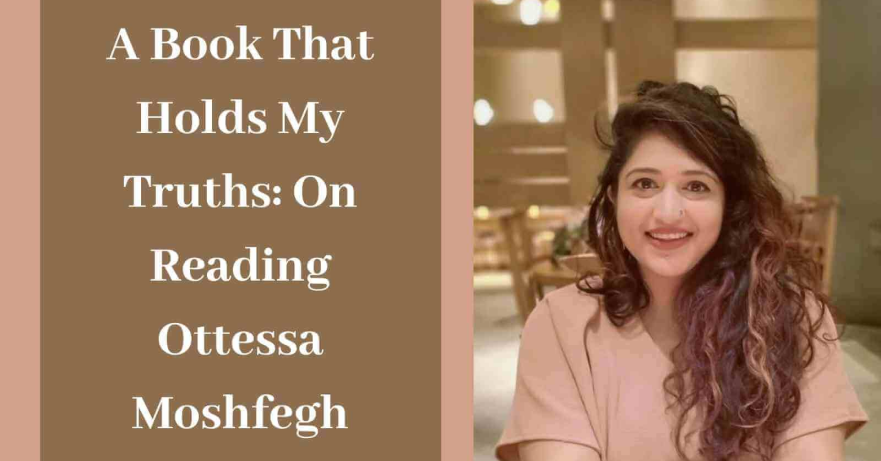December 2019
As the Gypsy moved through the Himalayas, snaking between the three feet of snow that had been recently cut to clear the road, Lieutenant Chauhan, sitting at the back of this fairly camouflaged army vehicle, experienced a sudden rush of emotions. The snow-covered mountains felt strangely familiar, even though the lieutenant had visited this part of the country for the first time only a few days back. The days had been spent scaling mountains laden with thick snow, trying to track signals and interpret messages which were encrypted and dangerous. But the young lieutenant did not mind the hard work.
As the vehicle circled the mountains, going higher and higher to the Indian Army Post, which was their destination, Lt Chauhan stared out at the landscape, almost mesmerized. Clearly, the new officer was still in awe of the haunting beauty of this part of Kashmir; the last few days in this location had not diminished the wonderment that shone in those eyes.
“ Lt Chauhan sat there, calm and composed,
not betraying the overwhelming emotional rollercoaster this was proving to be.
Major Vikram Rana, Sena Medal, the officer sitting in the co-driver seat, turned around and said, ‘Kashmir—heaven on Earth. It almost feels like we’re in an exotic foreign country, doesn’t it?’
‘Yes, sir,’ replied Lt Chauhan. And then added, ‘but it feels familiar at the same time.’
A shadow of sorrow mixed with immense pride crossed Maj. Rana’s face.
Lt Chauhan sat there, calm and composed, not betraying the overwhelming emotional rollercoaster this was proving to be.
This is the karmbhoomi for heroes, Lt Chauhan thought—something that had kept the young officer motivated over the past few years of turmoil.
September 2013
Captain Ranvijay Chauhan, Sena Medal, stood outside his quarters at his Para unit headquarters in Udhampur, J&K, a Borosil glass of steaming tea in his hands. He looked at the crisp, blue sky and wondered what his next call of duty would be, and how soon. Kicking his heels, waiting around at the headquarters wasn’t something he enjoyed doing, even when the unit was busy and buzzing.
The mere mention of Capt. Chauhan’s formidable Parachute Regiment Special Forces unit was enough to make cross-border infiltrators change their plans, quite literally. And Capt. Chauhan, a counterterrorism specialist, was considered one of the best commandoes because of his expertise on the terrain, his exemplary leadership skills and courage beyond the call of duty. The unit’s reputation made it imperative for it to keep its location a secret, and the paltans always kept moving to cover the area for surveillance and operations, hardly ever staying in one place for too long.
Nevertheless, keeping a Para SF unit’s presence secret in this area was a tough task. Pakistan’s military machinery had an impressive intelligence network along the Line of Control and in J&K. But deception is an art that Para SF was skilled in and like all Para soldiers, Capt. Chauhan was always careful not to give away any hint of their presence.
Unlike most army officers, he had a beard and wore civil clothes instead of a uniform. A lot of Para SF commandos in active duty in the area lived like this. Capt. Chauhan also knew the local dialect well and could speak fluently like a native of the area.
“Only three days ago, his team had put an end to an
ongoing encounter between J&K Police and two
Lashkar-e-Taiba terrorists in Baramulla.
He loved the Kashmir valley and was dedicated to his role in restoring peace in the area. To him, it felt like the higher purpose of his life. This is why the young captain had been restless over the past three days, which he and his paltan spent at the headquarters. He knew that his men were just as eager as he was to receive their next assignment, whatever it might be, to break out of this state of limbo.
Only three days ago, his team had put an end to an ongoing encounter between J&K Police and two Lashkar-e-Taiba terrorists in Baramulla. Both the terrorists were eliminated and the Para SF team came out without sustaining any injuries or casualties. This was what mattered most to Capt. Ranvijay Chauhan, and back at the HQ that morning, he felt what he always felt after each of the eight operations he had been involved in till date—a mammoth sense of accomplishment, not only because of the eliminated terrorists, but because, for the eighth time, he was able to return to base with all his men alive and safe.
That was what drove Capt. Ranvijay Chauhan.
When he was commissioned to the Indian Army, he not only vowed to protect his country and his countrymen, he also swore to himself to never take the lives of the exemplary men, his paltan, for granted. Protecting his men on every mission was as crucial to him as the mission itself, and he was proud, almost relieved, every time they returned from a mission, successful and in full strength.
Later that night, Capt. Chauhan sat listening to the radio set in the HQ, indulging in his hobby while he was in between missions and sipping rum. Lance Naik Siddhu, who had been Capt. Chauhan’s buddy ever since his induction to the Para SF, and who was one of the most
remarkable soldiers the captain knew, was reminiscing about Capt. Chauhan’s first mission.
‘Vikram Rana sir was supposed to go for the mission, but he and his squad were on a recce at a higher altitude and couldn’t trek back in time because of the snow. That was how Chauhan sir was assigned his first mission in the very first month of his joining,’ said Siddhu to the radio operator, who was also a trained soldier and part of the same Para unit.
“this was the first time Saab had faced a terrorist . . .
The operator continued with the narrative: ‘Saab fired his gun, but the bullet only hit the terrorist’s leg. Everyone in the squad assumed that Saab had deliberately shot him in the leg to merely injure the terrorist, but I knew—this was the first time Saab had faced a terrorist . . . his hand had been shaking.’
‘I’ve been with Saab ever since his commissioning, I know him well. I shouted from behind a tree, which was my position, “Saab, next bullet in his head!”
‘And then Saab put a bullet into the terrorist’s head!’ the radio operator triumphantly came to the end of his reminiscence, a tinge of pride in his voice. They were from the same unit after all and the glory was for all of them to share.
‘Yes he did!’ Lance Naik Siddhu prompted.
‘On our way back from the operation, I said to him, “Saab, although they had AK-47s, your own M4A1 5.56-mm carbine got in first and got its first opportunity to fire at the enemy; it’s a good beginning.”’
‘No guts, no glory,’ said Capt. Chauhan. ‘I learnt the true meaning of this phrase that day, Siddhu.’
It was indeed a good beginning. And Capt. Chauhan’s guns did not stop eliminating terrorists ever since that fateful first day. His hands never shook. His aim never wavered. His bullets never missed. And his squad always returned home in full strength.
Time passed and ever since then, this squad took care of many jihadi infiltrations in the Kupwara district—an area that Capt. Chauhan knew like the back of his hand.
* * *
January 2014
The first week of January went by with the squad carrying out desultory patrol duties and while counterinsurgency operations were underway in the area, it had been a few days since Capt. Chauhan had been assigned a mission.
Being highly motivated to stay in action, the entire squad was restless and eagerly looked forward to their next mission. Waiting is not something the Para SF soldiers relished; just as they didn’t enjoy time idled away resting in their barracks or being incarcerated at home on leave—they would always rather be on a mission. At dinner at the officers’ mess one evening, Capt. Chauhan wondered out loud when they should expect to be briefed for their next op.
And news arrived the very next day.
Two Pakistani terrorists had crossed the LoC and entered the Ramban area. Ramban was situated in the lap of the Pir Panjal range of the mighty Himalayas. The intelligence report said that the two were stealthily making their way across the area, carrying ammunition replenishments that were to be handed over to a Lashkar-e-Taiba group somewhere around Naugam.
Just a week ago, their formation had been informed by Indian intelligence that they had picked up tips about a brutal assault being planned in a crowded public place in Srinagar by the extremely radical terror group, Lashkar-e-Taiba. The intel was not specific at the time, and not corroborated. But now, the new report of this infiltration indicated that this public attack was indeed a possibility, and the ammunition was being supplied from across the border.
Excerpted with permission from Operation Payback by Aditi Mathur Kumar
Publishing/ Penguin Random House India (2023)
You can buy your copy here.

Aditi Mathur Kumar is an author, mother, advertising professional and a proud Indian Army wife. Aditi’s first book, Soldier & Spice, is a heart-warming and poignant story about the grand and mysterious world of Army wives, and since it was released in 2013, the book gave way to a whole new genre of stories about defence families. As a civilian married to an Army officer, she believes that the world needs to hear the stories of families of those serving in the forces. Aditi is also the only Indian Army wife to deliver a TEDx talk about the lives of Army families. Aditi’s other books include Love, Whatever That Means, which is a hilarious and moving story of an Army girlfriend, and This Heartbreak, a collection of poems. Aditi’s latest book, Operation Payback, is the story of a Veer Nari (war widow) and her unmatched grit and courage in the face of misfortune and adversity.








